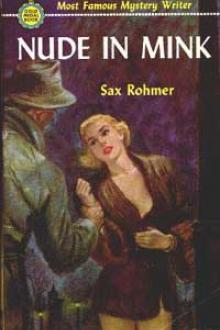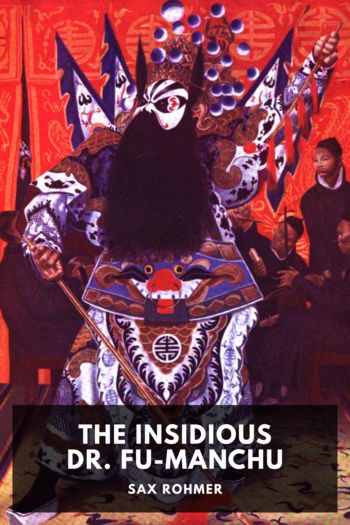Nude in Mink by Sax Rohmer (top reads .TXT) 📕

- Author: Sax Rohmer
- Performer: -
Book online «Nude in Mink by Sax Rohmer (top reads .TXT) 📕». Author Sax Rohmer
There was a semi-circular recess, like a shrine, approached by three marble steps and veiled by silk curtains of rosy pink.
The existence of this singular apartment was destined to arouse keen curiosity in certain quarters (and before long) and to provoke equally keen incredulity in others.
A high, sweet note, that of a bell or of a silver gong, split the hushed silence, hitherto unbroken except for faint stirrings of lily leaves in the pool when one of several large golden orfe swimming there disturbed them.
Almost noiselessly, a bronze door was opened at the head of a short flight of marble steps. The handrail also was bronze, terminating in a newel post representing a sphinx. A man came down, slowly. He was a man of slight and graceful build. His leisurely move





Comments (0)